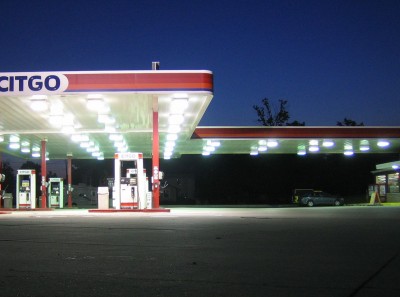Following an increased threat of synthetic drugs and addiction over the last four years, Massachusetts Attorney General Maura Healey joined a coalition of attorneys general to request major oil companies eliminate the sale of synthetic drugs in their franchises, according to a Tuesday press release.

Healey, joined by 42 other attorneys general, signed a letter requesting nine major oil companies, including British Petroleum, Chevron Corporation, Citgo Petroleum Corporation and Exxon Mobil Corporation, to collaborate with their franchises to eliminate the drugs.
Kevin Outterson, a professor at the Boston University School of Law, said synthetic drugs fall through the cracks in the American system for approving products.
“They’re not yet labeled by the federal government as scheduled drugs that are illegal to sell, but they’re not the same as food or drugs like Red Bull,” he said. “There are many reasons to think that they’re more dangerous and more powerful than what people may ordinarily purchase in the retail section of a gas station. So it’s a step by the states to regulate this until the federal government makes a stronger, clearer decision.”
Since 2011, more than 28,000 people, many of whom were younger than 17, went to the emergency room after using synthetic marijuana, and thousands more continue to use and abuse these synthetic drugs, the letter stated. Enforcement agencies have also confirmed more than 130 instances of branded gas stations having sold synthetic drugs in 29 states.
“As we continue to confront a growing addiction crisis across our country, it is crucial that these illegal drugs are not accessible in retail locations, especially to our young people,” Healey said in a release accompanying the letter. “We urge these companies to remove these dangerous products from store shelves and ensure that they are no longer available in any branded gas station or convenience store.”
Manufacturers of synthetic drugs seek to evade state and federal law, the letter stated, by creating chemical compounds that are not yet prohibited in the United States, creating versions of synthetic drugs that are just as deadly.
“While synthetic drugs are illegal, the initial confusion surrounding the legality of synthetic drugs enabled drug dealers to convince retail locations, like ‘smoke shops,’ gas stations and convenience stores that it was lawful for the stores to sell products to consumers,” the letter stated. “With widespread access, use of synthetic drugs rose rapidly.”
The legality of the drugs, Outterson said, is something Healey is directly addressing to ensure the safety of those who may be purchasing the harmful substances.
“They’re not food, and they’re not yet regulated as drugs, so if they think that the product doesn’t serve a legitimate service and it’s harmful to the public health then it’s exactly the thing that can be regulated by the state,” Outterson said.
Outterson compared the request to CVS’s voluntary move to discontinue the sale of tobacco products, despite them being legal in nature.
“They did that because they want to improve their reputation, so if this voluntary request doesn’t hold up, then they wait for the state legislation or the federal government to ban it [synthetic drugs],” Outterson said. “This is a measure just waiting for legislation to be in place.”
Several residents said there should be a certain amount of regulation to the use of synthetic drugs because they are so readily available to the public.
Aneel Brar, 33, of Brighton, said regardless of the danger, companies will sell a product if they are permitted to do so.
“If it’s allowed to be sold, you can’t expect them not to sell it. There has to be some sort of regulation on it,” he said. “If they’re allowed to sell cigarettes, they’re going to sell cigarettes. If they’re allowed to sell alcohol, they’re going to sell alcohol. So why not sell this, if they’re allowed to sell this? There has to be some kind of regulation on it. There should be a regulation on this if they don’t know what the effect is.”
Hayden Mitchell, 23, of Kenmore, said without regulations, similar drugs can potentially be put back on shelves under a different name after they’ve been removed.
“When one of these drugs comes to market, it’s put in a convenience store then eventually it’s taken off, but then the same drug under a new name will pop up,” she said. “So, the biggest problem is that they need to find a way to stop the bad process and it’s really hard to do, because like I said, it’s not FDA-approved. I’m not sure what the solution is, but I think it’s a good idea because you have these drugs, readily available and as easy as cigarettes to people, and we don’t know how they affect the body in the long term.”
